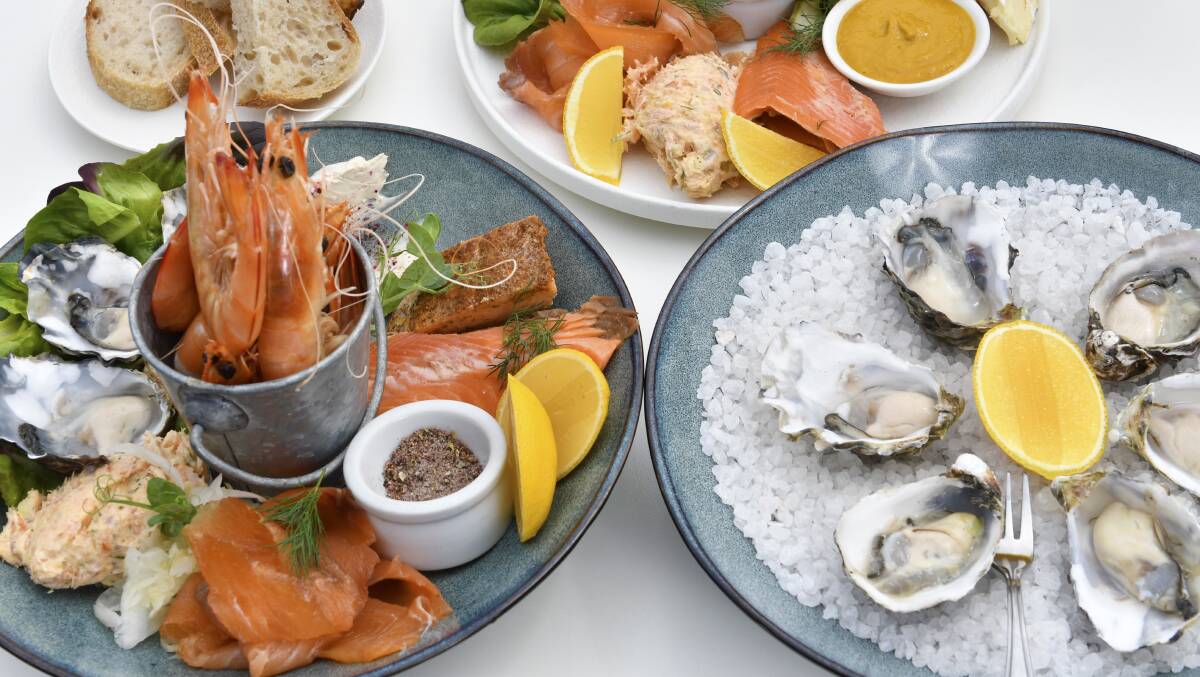Fish products sold in stores and restaurants may not be what they claim.
Subscribe now for unlimited access.
$0/
(min cost $0)
or signup to continue reading
A survey conducted by the Australian Seafood Cooperative Research Centre found 50 per cent of consumers assumed the seafood they purchased was Australian if there was no stated country of origin.
But that may not be the case.
While Australian fisheries are subject to rigorous environmental and traceability standards, seafood fraud is a widespread problem as the complex supply chains involved in international fishing leave the industry vulnerable to intentional mislabeling and substitution.
Australia primarily imports seafood from Thailand, Vietnam, China, New Zealand and Indonesia, to the value of $2.14bn, according to Australian government data from 2021.
University of Western Australia law school and Oceans Institute senior lecturer Dr Jade Lindley told ACM the scale of fish fraud internationally was difficult to quantify.
"That's partly because we don't test for it as it comes into the border. So we don't actually know what's coming in internationally. But also, we're not really policing it, because it's not a crime," she said.
"So we don't know necessarily where it's from, we don't know what sort of water it's been in. We don't necessarily know what it has been eating."
A United Nations report found several instances of workers' rights violations, such as forced labor and inhumane treatment. The study also acknowledged the use of fishing vessels for smuggling migrants and trafficking of drugs, or as a cover for other illicit activities.
Dr Lindley said the international fishing industry is vulnerable to crime.
"It remains a really lucrative industry for criminals to get involved with and part of that is illegal fishing or overfishing.
"That includes fishing beyond the licence, fishing without a licence, fishing in areas that are not licenced - that might be no take zones, or they might have different gear and equipment for what the licence allows," she said.
"It also often leads to transnational organised crime. People are quite often trafficked into illegal fishing to work on fishing vessels, to process fish, or to make repair nets."

Nationally consistent country of origin labelling is already required for most food sold in retail settings, including supermarkets and grocery stores. But not for hospitality settings like restaurants, cafes and hotels.
The federal government has proposed a model that would require all cafes, bars, hotels and restaurants to indicate if seafood is Australian, imported or international, or mixed origin (containing both Australian and imported seafood).
Place of origin labelling could prevent fraud
Advocates say the absence of transparent labelling fails the consumer.
Seafood Industry Australia CEO Veronica Papacosta welcomed the announcement.
"The introduction of country-of-origin labelling in food service will allow consumers to make informed decisions about the seafood they buy in restaurants, cafes and takeaway food stores across the country - and allow them to support our great Australian seafood producers," she said.
"Right now, for food safety purposes, the supply chain of seafood is known in food service all the way to the kitchen door, however, the information is often not passed on."
The Minderoo Foundations Global Fishing Index report in 2021 found that Australia received a D grade for the state of fisheries, with 38 per cent of its assessed fish stocks classified as "overfished" and 60 per cent of the total catch in Australia's waters from unassessed, data-lacking stocks.
IN OTHER NEWS:
Queensland Seafood Industry Association CEO David Bobberman said the proposal could go further.
"I'd like it to go one step further and have the label say whether or not it is wild caught or farmed," he said.
"Country-of-origin labelling will tighten things up a little bit.
"But if there is a dishonest player in the game, regardless of how many layers of bureaucracy you want to put on, that dishonest person will always be dishonest."
Fish fraud a risk to health
A recent Australia study analysed flake sold in South Australian fish and chip shops and found that only 27 per cent of all samples were identified as gummy shark. Endangered species of shark were being sold as flake.
Mislabelling can pose a health risk to consumers. According to Oceana International, an array of potential contaminants, pathogens, and allergens may be disguised in the process of mislabelling.
Concerns include the presence of food dyes and antibiotics as well as diseases such as ciguatera, that is now increasingly imported along with the large reef fish that carry this form of food poisoning.
Consultation over the proposed model of country-of-origin labelling for seafood in hospitality wound up on March 15.
ACM contacted the Australian Seafood Producers and Importers for comment.


